Filter by
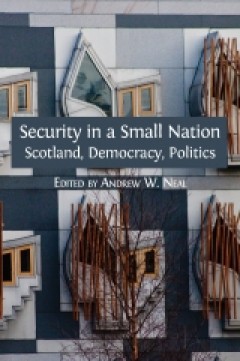
Security in a small nation : scotland, democracy, politics
The 2014 Referendum on Scottish independence sparked debate on every dimension of modern statehood. Levels of public interest and engagement were unprecedented, as demonstrated by record-breaking voter turnout. Yet aside from Trident, the issue of security was relatively neglected in the campaigns, and there remains a lack of literature on the topic. In this volume Andrew Neal has collated a va…
- Edition
- -
- ISBN/ISSN
- 9781783742707
- Collation
- ix, 256 p. ; ill
- Series Title
- -
- Call Number
- 355.0309411 NEA s

Essays on Paula Rego: smile when you think about hell
In these powerful and stylishly written essays, Maria Manuel Lisboa dissects the work of Paula Rego, the Portuguese-born artist considered one of the greatest artists of modern times. Focusing primarily on Rego’s work since the 1980s, Lisboa explores the complex relationships between violence and nurturing, power and impotence, politics and the family that run through Rego’s art. Taking …
- Edition
- -
- ISBN/ISSN
- 9781783747580
- Collation
- xv, 492 p. : ill. : ind. ; 24 cm
- Series Title
- -
- Call Number
- 759.421 LIS e
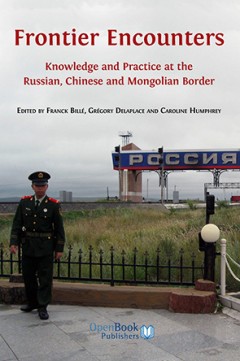
Frontier encounters: knowledge and practice at the Russian, Chinese and Mongo…
China and Russia are rising economic and political powers that share thousands of miles of border. Yet, despite their proximity, their practical, local interactions with each other — and with their third neighbour Mongolia — are rarely discussed. The three countries share a boundary, but their traditions, languages and worldviews are remarkably different. Frontier Encounters presents a w…
- Edition
- -
- ISBN/ISSN
- 9781906924898
- Collation
- ix, 280 p. : ill. : ind. ; 24 cm
- Series Title
- -
- Call Number
- 327.51047 FRO f
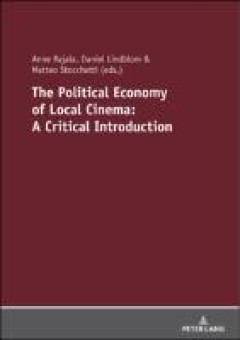
The political economy of local cinema : a critical introduction
The globalization and digitalization of cultural markets presents formidable challenges for local cinema and storytelling. The essays in this collection address some of these challenges from the perspective of a critical political economy of local cinema. Inspiring these contributions is the effort of supporting local cinema as a form of valuable storytelling that is at risk of market-driven ex…
- Edition
- -
- ISBN/ISSN
- 9783631813300
- Collation
- 257p. : ill.
- Series Title
- -
- Call Number
- 302.2343 RAJ t

World of walls: the structure, roles and effectiveness of separation barriers
Borders have been drawn since the beginning of time, but in recent years artificial barriers have become increasingly significant to the political conversation across the world. Donald Trump was elected President of the United States while promising to build a wall on the Mexico border, and in Europe, the international movements of migrants and refugees have sparked fierce discussion about whet…
- Edition
- -
- ISBN/ISSN
- 9781783743704
- Collation
- 143 p. : ill. : ind. ; 24 cm
- Series Title
- -
- Call Number
- 304.8 SAD w
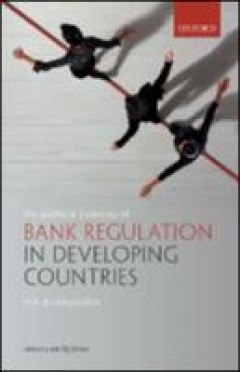
The political economy of bank regulation in developing countries : risk and r…
Why do governments in some developing countries implement international standards, while others do not? Focusing on the politics of bank regulation, this book develops a new framework to explain regulatory interdependence between countries in the core and the periphery of the global financial system. Drawing on in-depth analysis of eleven countries across Africa, Asia, and Latin America, it sho…
- Edition
- Ed. 1
- ISBN/ISSN
- 9780198841999
- Collation
- xvii, 386 p. : ill.
- Series Title
- -
- Call Number
- 332.1091724 JON t
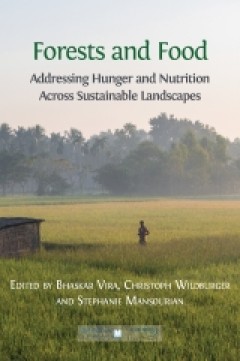
Forests and food : addressing hunger and nutrition across sustainable landscapes
As population estimates for 2050 reach over 9 billion, issues of food security and nutrition have been dominating academic and policy debates. A total of 805 million people are undernourished worldwide and malnutrition affects nearly every country on the planet. Despite impressive productivity increases, there is growing evidence that conventional agricultural strategies fall short of eliminati…
- Edition
- -
- ISBN/ISSN
- 9781783741953
- Collation
- viii, 280 p. : ill.
- Series Title
- -
- Call Number
- 338.19 WIL f
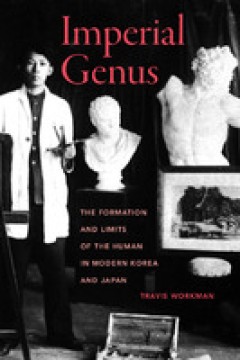
Imperial genus : the formation and limits of the human in modern Korea and Japan
"Imperial Genus begins with the turn to world culture and ideas of the generally human in Japan’s cultural policy in Korea in 1919. How were concepts of the human’s genus‑being operative in the discourses of the Japanese empire? How did they inform the imagination and representation of modernity in colonial Korea? Travis Workman delves into these questions through texts in philosophy, lit…
- Edition
- -
- ISBN/ISSN
- 9780520964198
- Collation
- vii, 307 p. : ill,
- Series Title
- -
- Call Number
- 951.903 WOR i
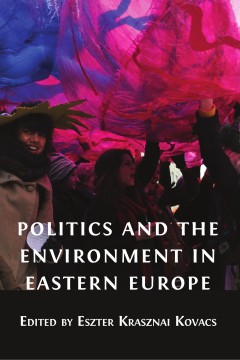
Politics and the environment in Eastern Europe
Europe remains divided between east and west, with differences caused and worsened by uneven economic and political development. Amid these divisions, the environment has become a key battleground. The condition and sustainability of environmental resources are interlinked with systems of governance and power, from local to EU levels. Key challenges in the eastern European region today include …
- Edition
- -
- ISBN/ISSN
- 9781800641341
- Collation
- 342 p. : ill.
- Series Title
- -
- Call Number
- 363.700947 KRA p
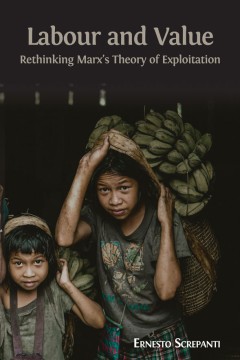
Labour and value : rethinking Marx's theory of exploitation
In this book Ernesto Screpanti provides a rigorous examination of Marx’s theory of exploitation, one of the cornerstones of Marxist thought. With precision and clarity, he identifies the holes in traditional readings of Marx’s theory before advancing his own original interpretation, drawing on contemporary philosophy and economic theory to provide a refreshingly interdisciplinary exegesis. …
- Edition
- -
- ISBN/ISSN
- 9781783747818
- Collation
- 144 p. : ill.
- Series Title
- -
- Call Number
- 179.8 SCR l
 Computer Science, Information & General Works
Computer Science, Information & General Works  Philosophy & Psychology
Philosophy & Psychology  Religion
Religion  Social Sciences
Social Sciences  Language
Language  Pure Science
Pure Science  Applied Sciences
Applied Sciences  Art & Recreation
Art & Recreation  Literature
Literature  History & Geography
History & Geography